House of Strangers (1949) starring Edward G. Robinson, Richard Comte, Susan Hayward
House of Strangers is supposedly a film noir, but it doesn’t feel like one. Instead, it’s the story of an immigrant family, with a controlling, hard father who runs the family with an iron fist, and his anger and control extends beyond the grave. It’s also the story of the favored son, who goes to prison for his father’s crime — and after his father’s death, manages to break free of the anger and bitterness that his father used to control him.
Into the past
![]() House of Strangers begins with favored son Max Moretti (Richard Comte in a fine performance) returning to his father’s bank after a seven year absence, where he reunites with his three brothers — but it’s not a happy reunion. It’s clear that there’s tension between them, and that their father has passed away. The brother who runs the bank – Joe – offers him $1,000 telling him that that’s all he’s going to get. Max rejects the money and leaves, and the story proceeds in flashback, seven years ago …
House of Strangers begins with favored son Max Moretti (Richard Comte in a fine performance) returning to his father’s bank after a seven year absence, where he reunites with his three brothers — but it’s not a happy reunion. It’s clear that there’s tension between them, and that their father has passed away. The brother who runs the bank – Joe – offers him $1,000 telling him that that’s all he’s going to get. Max rejects the money and leaves, and the story proceeds in flashback, seven years ago …
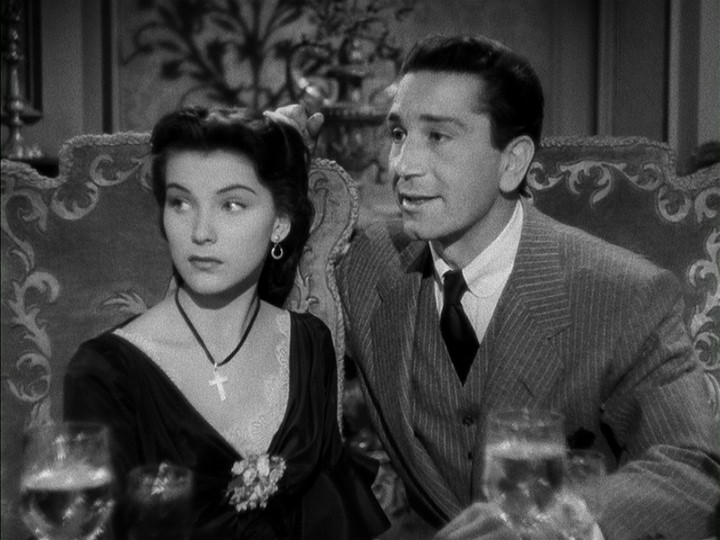
Max is a lawyer, working his office out of the bank of his father — Gino Moretti, played extremely well by Edward G. Robinson, who frankly deserved at least an Oscar nomination for his performance. Gino runs his bank with an iron fist, with his other three sons working there: Joe (Luther Adler, D.O.A.) the underpaid, disrespected oldest son; Tony (Efrem Zimbalist Jr., Batman: the Animated Series) the quiet son who doesn’t take a side; Pietro (Paul Valentine, Out of the Past) the strongest son who relies on brawn rather than brain — his father’s nickname for him is “dumb head.”
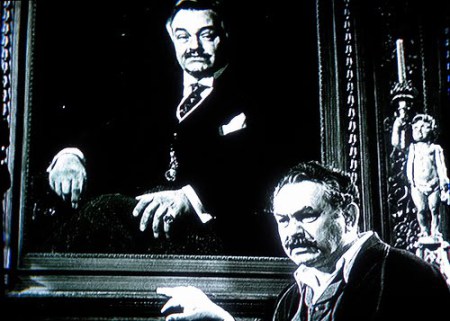
Gino the banker
Gino, an Italian immigrant, has worked his way up from being a barber working sixteen hours a day, to a successful banker — who rules his family and bank with an iron fist, and doesn’t listen to anybody else’s rules. Max is his favorite, in no small part because Max has found his success by standing on his own two feet, apart from his father, and so has earned Gino’s respect. Max is engaged to the lovely Maria (Debra Paget, The Ten Commandments) — but is actively dating other women, including a new client, Irene Bennett (Susan Hayward, I Want to Live, The Snows of Kilimanjaro) — and his romance with her begins to take on a life of its’ own, and his attraction to her turns into something more over the course of the film.
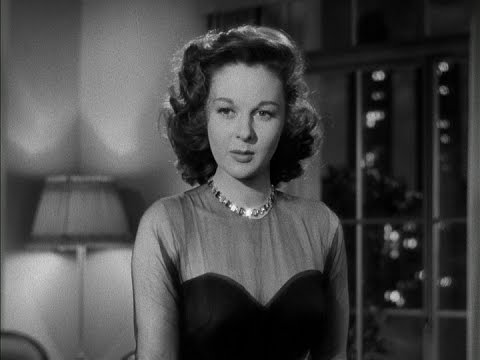
Weekly dinner
There’s a telling scene where all of the sons are at the obligatory weekly dinner — where favorite son Max is late, and Gino makes everyone wait for him; Joe wants the raise that he was promised in order to better provide for his wife, but is afraid to ask. And he has Max ask for him. Gino says no — partly to demonstrate his control over his other three sons. “if you don’t like it, work for another bank.”
But all is not well at the bank. Gino is being investigated for numerous irregularities, and is facing 22 counts from the state government, and the state has closed the bank, leading to a near-riot where Gino is injured. But Max has a plan. If the four brothers will work together, the state won’t be able to prove who knew what, and won’t be able to make any of the charges stick.
Gino’s trial
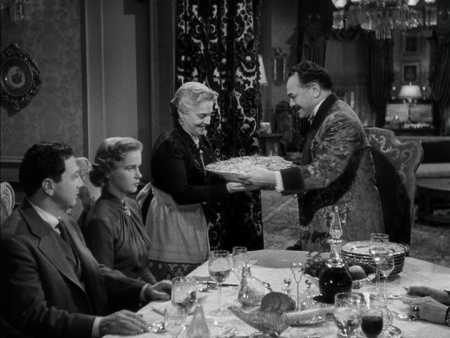
But Gino’s behavior to his other three sons finally have consequences, as the three disrespected sons are not willing to put their heads in a noose for their father’s sake. And so Max is forced to try and find an alternate solution.
At trial, there is one juror who is sympathetic to Gino’s case, and after a short discussion with Joe, Max tries to bribe her to continue to do so. The poor woman maintains her integrity and refuses — and as Max leaves the apartment building, the police are waiting to arrest him.
Prison term
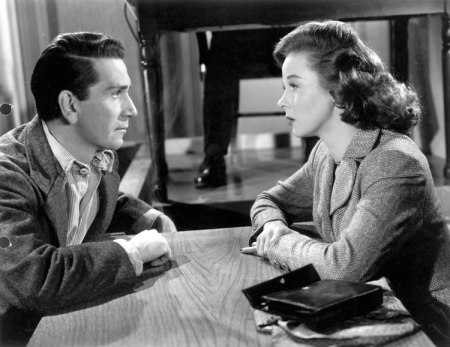
Max then serves seven years in prison, and Gino loses control of the bank — his life’s work — to his other three sons, who tell him to leave, and do what other old men do: go feed the pigeons in the park. Gino visits his son Max in prison, and returns Maria’s engagement ring to him, as Maria is now going to marry Tony instead. Gino urges Max to get revenge on his brothers, telling Max that Joe betrayed him to the police; and Max agrees, not needing much convincing.
Shortly afterward, Gino dies, and Max is allowed to attend the funeral, with a tense reunion with his brothers and mother. Back into the present, Max is visiting the old mansion — his mother no longer lives there, unable to bear the unhappy memories of that place, and lives in the small apartment that she, Gino and the boys shared when they were poor, but happy. Max has been reflecting on his life throughout the flashback, and has made a decision: to not pursue vengeance, but to leave his past behind and move onward with his life with Irene. But one problem remains …
Confrontation
His three brothers confront him at the old house, and don’t believe that he intends to leave them alone. As Joe puts it,
“Pa never changed, neither will you — you’ve both got the same blood. But so have I; that’s what you’ve forgot.”
And this nearly leads to Max’s murder, until Joe makes the mistake of calling Pietro “dumb head”. And the tables turn, with Max sparing Joe’s life, to keep Pietro from becoming Gino’s instrument of revenge.
In short, House of Strangers is an excellent film, with great acting, cinematography, and directing — a true to life parable on the effects of bitterness and control, and recommended highly – I rate it a very rare 5 stars, since I don’t see how it could have been better.
Movie quotes from House of Strangers
Gino Moretti (Edward G. Robinson): It’s fun to get kissed, don’t you remember?
Helena Domenico (Hope Emerson): Not until you’re married!
Gino Moretti (Edward G. Robinson): Then, it’s no fun.
Max Monetti: Always looking for a new way to get hurt from a new man. Get smart, there hasn’t been a new man since Adam.
Helena Domenico: I’ll have you know my husband died happy.
Gino Monetti: Your husband was happy to die, which is a different thing.
Gino Moretti: Old world, a man and woman get engaged, wait a one year, two year, they get tired of each other, they get married. New world, they get married right away — get tired of each other later.
Gino Moretti: Books is no way to run a bank!
Gino: [in a steam bath] They’re looking at my books and asking questions.
Max: You have the answers, don’t you?
Gino: Why do you think I’m sweating?
Max Monetti: Pa, have you read the new banking act?
Gino Monetti: I don’t even read the old one. Why?
Pietro: What was I ever to you? A dumbhead.
Max: [as his mother enters the room] You’re just in time, ma … did you know you raised a household of strangers?
Gino Moretti (Edward G. Robinson):The bank of Gino Moretti — and his sons. The bank! The bank! That’s what I work for — the bank of Gino Moretti and his sons! But I have no sons.
Prosecutor: Your honor, what does all this talk about babies have to do with the Banking Act?
Gino Moretti: What’sa matter, you no like babies?
Joe: The old man got himself in, let him get himself out.
Max: This is the time I’ll remember.
Joe: We do things legally now.
Joe: The name we hope to live down.
Gino: They steal the bank from me, Max.
Gino: Maria asked me to give you this. [returns engagement ring to Max in prison]
Max: I expected it.
Gino: She’s a gonna marry Tony.
Gino: You got to feel it, Max, for me. You’ve got to do this, Max, for me! You’ve got to make them pay!
Max: They’ll pay, Pa.
Irene: What do you use on your pen, poison or the normal kind?
Irene: When you die, what a treasure you’ll leave to the world — four sons full of hate!
Gino: This is none of your business!
Irene: You think of that sometimes, don’t you? That you belong up there instead of Max.
Max: [speaking to his dead father’s portrait] Dog eat dog, never forgive, never forget. That’s the way you raised us, Pa. But I’ve got news for you.
Joe: Pa never changed, neither will you — you’ve both got the same blood. But so have I; that’s what you’ve forgot.
Max: [to Pietro] You’re not a dumb head! Be smart! If you kill Joe, you’ll kill him for Pa!


